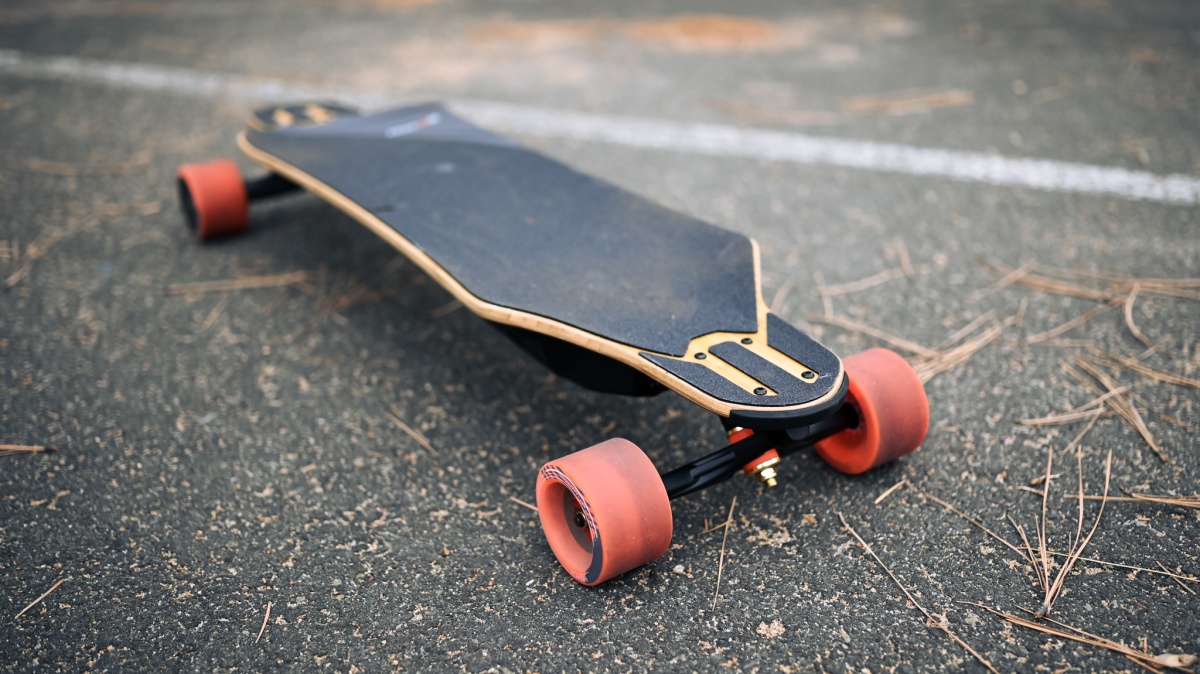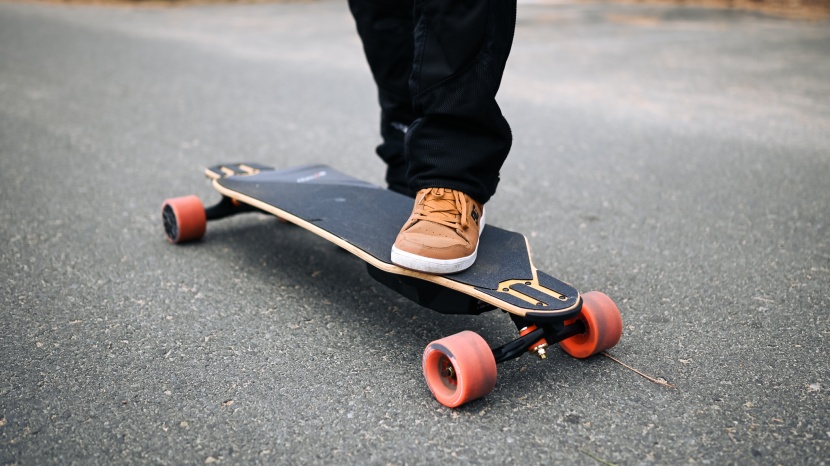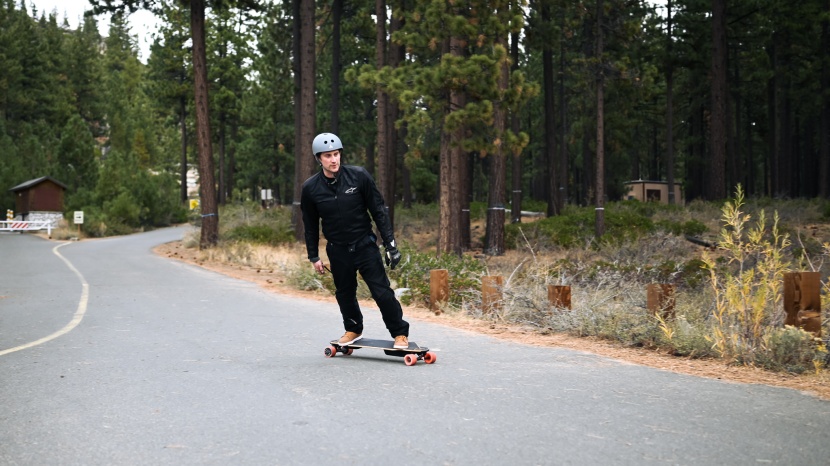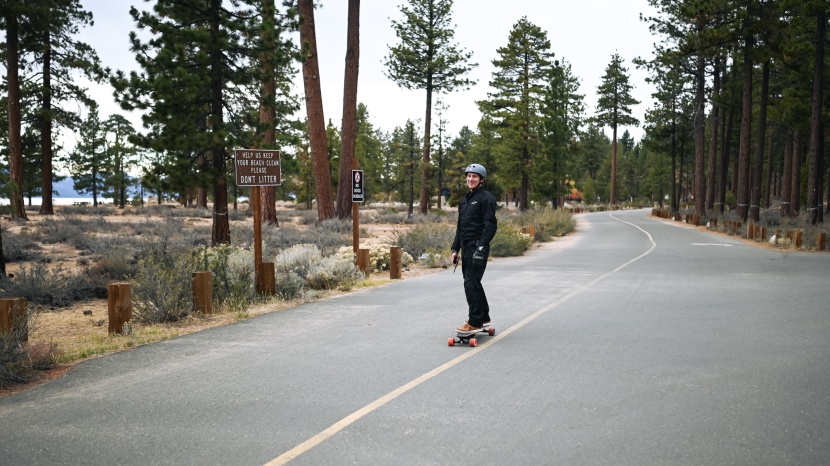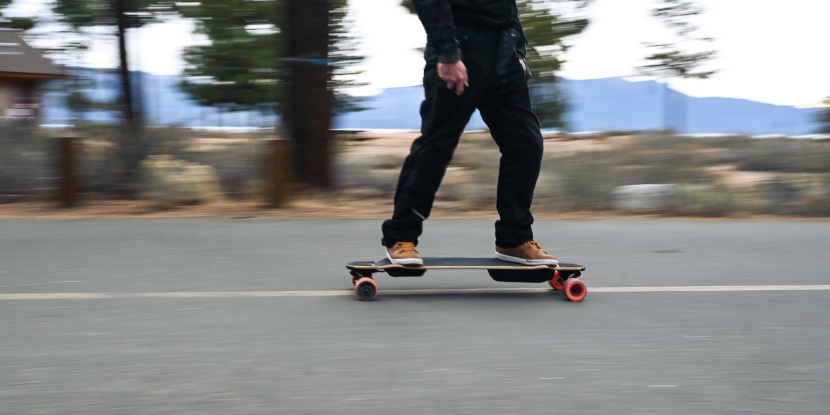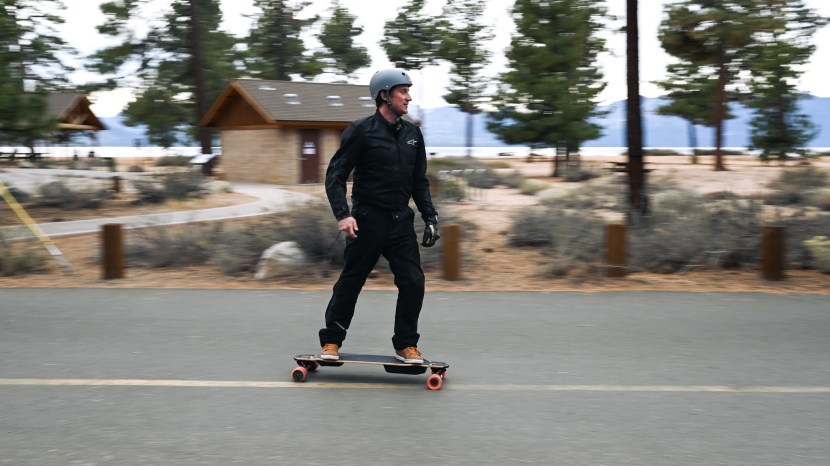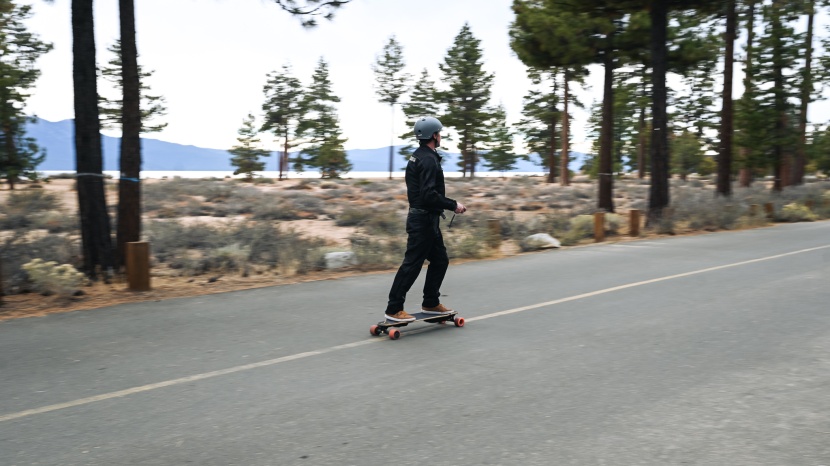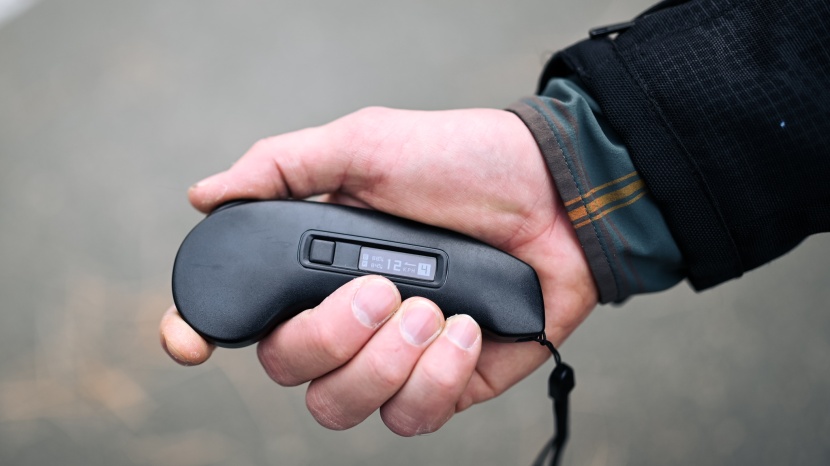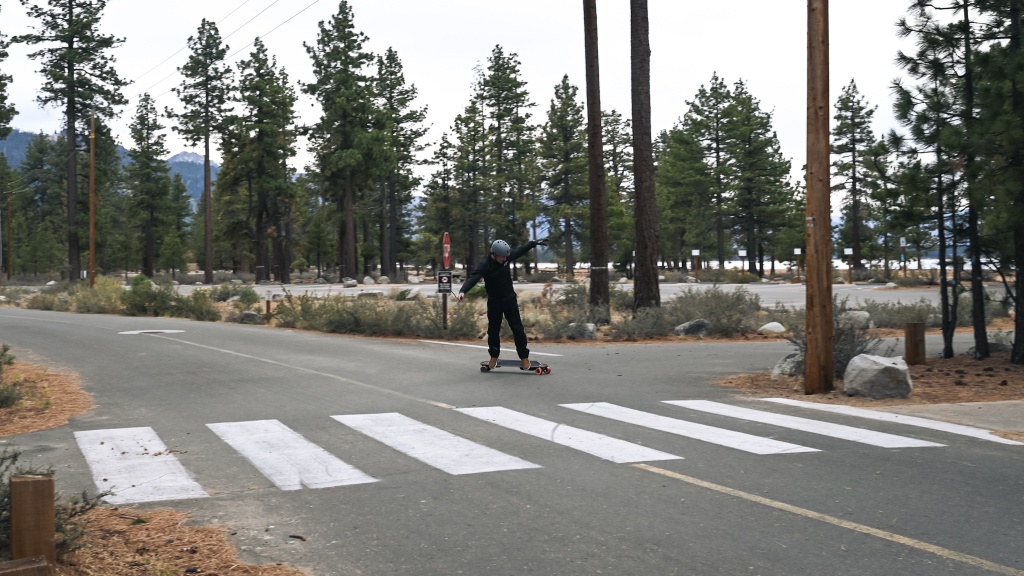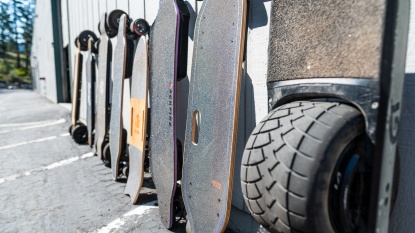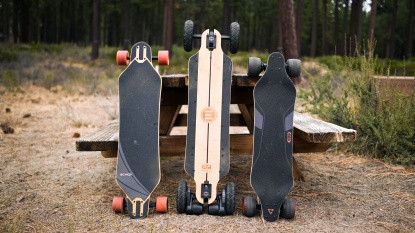
Our Verdict
Our Analysis and Test Results
Ride Comfort
The Flex has an excellent deck feel, but was a little bumpy on rougher terrain.
The concave shaping of the Flex cradled our feet comfortably, keeping us on the board in any terrain. The padded grip tape is also a welcome addition on top of the flexible trilaminate deck material.
While small cracks were easily handled, we unfortunately felt every medium to large-sized crack or bump, and our feet even vibrated on rougher surfaces. Our testers all agreed this option is best on smoother riding surfaces, but the secure-feeling deck will help you stay on if your ride occasionally gets rougher.
Range
Our testers found that the Flex has a max range of 14 miles, which is half the distance of some boards. For many, this range will be fine for what they'd like to ride, with plenty of fun that can be had in that distance.
In the last mile or two of our max range test, the Flex slowed down slightly but otherwise offered consistent performance throughout its battery's life.
The Flex required 3 hours and 40 minutes to charge from 0% to 100% battery, making it one of the slower charging times relative to its range. While a few other options took longer to charge, their range was also substantially further. For many riders, this won't be a huge deal, but if you're looking to ride multiple times a day, you might need to keep your rides short if you choose this option.
Speed
The top speed of the Flex clocked in at an average of 23.86 miles per hour, offering plenty of power for your riding wants.
Relative to its ride comfort, we'd recommend keeping the Flex off of rougher surfaces if you're planning on taking it to its top speed.
The Flex offers decent acceleration with an average of 4.18 seconds to get through our standardized 50-foot track. The best of the boards were only approximately one second faster, and those boards cost significantly more than the Flex.
Braking
When traveling downhill, the Flex did a great job regulating its speed if we kept it below 10 mph. Regulating our speed was challenging once we got above 10 mph, with a slightly scary delay from the time we applied the brakes to the time we truly slowed down.
As we learned the nuances of the Flex, we were able to anticipate our braking needs earlier, but we'd recommend that you take it slower on your descents.
The Flex had an average stopping distance of 45 feet. If you demand aggressive, fast-acting brakes, we'd recommend another option, but the Flex remains worthy of your consideration.
Hills
We put the Flex through many hill climbs of varying steepnesses up to 14%-15% grades and came away impressed with how it handled them, especially when considering its price point.
The Flex was able to zip up each hill we threw at it with a minimal decrease in speed. Even at steeper grades, we were pleased with this board's ability to get uphill with nearly the same amount of power we felt on flat ground.
Beginner Friendly
The Flex is quite beginner friendly, making it a top contender for anyone getting into electric skateboarding.
The Flex offers an easy-to-use remote with a simple button layout, allowing you to swiftly adjust key components of the board. An app also accompanies this option, allowing for further customization to fine-tune your ride just the way you want it.
Our favorite aspect of the Flex in this metric is its adjustable speed limit and its beginner mode. Even without speed limit tinkering, the beginner mode reduces the max speed down to 5-6 mph and has slow, steady acceleration. The braking isn't jerky, even if you accidentally hammer the brakes, greatly reducing the likelihood of getting thrown off.
This option is one of the lightest boards in our review at a measured weight of 18.4 pounds, making it far easier to transport than most of the competition.
Should You Buy the Exway Flex?
If you're tight on cash or are looking for the best beginner option, the Exway Flex should live at the top of your list.While there are some so-so performance considerations, the Flex is a functional and capable board that's half or a third of the price of our highest-scoring options. Rest easy knowing that we've put in the leg work testing this board, unearthing its best and worst qualities.
What Other Electric Skateboards Should You Consider?
The Flex is perfect for those who are new to electric skateboarding or are shopping on a budget. For a few hundred more dollars, the Backfire Zealot S checks all the boxes of a high-performance ESB, but is still reasonably priced. If you're looking for a top-tier ride and you don't mind spending the extra cash, the Ownboard Carbon Zeus Pro is ridiculously fast with a huge range. If you're in the market for a monowheel model, the Onewheel GT is unbeatable while the smaller Onewheel Pint offers solid overall performance at a much smaller price.
| Awards | |
|---|---|
| Price | $699 List |
Overall Score  |
|
| Star Rating | |
| Bottom Line | An incredibly inexpensive hub wheel board that's a great option for beginners and budget-minded riders |
| Pros | Very friendly for beginners, customizable settings in app, accessible price point, decent hill climber |
| Cons | Slightly below average range, so-so braking performance, bumpy on rough surfaces |
| Rating Categories | Exway Flex |
| Ride Comfort (30%) | |
| Range (20%) | |
| Braking (20%) | |
| Speed (10%) | |
| Hills (10%) | |
| Beginner Friendly (10%) | |
| Specifications | Exway Flex |
| Tested Maximum Range | 14.4 miles |
| Tested Maximum Speed | 23.9 mph |
| Tested Stopping Distance | 45 ft |
| Measured Weight | 18.4 lbs |
| Measured Time in Uphill Grade | 43 seconds |
| Measured Charge Time | 220 minutes |
| Measured Deck Length | 38.3" |
| Riding Modes | 1 2 3 4 |
| Battery | 216Wh 18650 |
| Manufacturer Weight Limit | 400 lbs |
| Manufacturer Deck Material | Flexible Tri-Laminate |
| Wheel Size | 85 mm |
| Truck Width | 8" |
| App available | Yes |
| Lighting | No |


